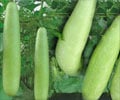Vegetable substitutes to petrochemicals on the anvil, say Australian researchers. They have been able to accumulate 30 per cent of an unusual fatty acid in Arabidopsis, their model plant.
Vegetable substitutes to petrochemicals are on the anvil, say Australian researchers.
Scientists working within the joint CSIRO/Grains Research and Development Corporation Crop Biofactories Initiative (CBI) have been able to accumulate 30 per cent of an unusual fatty acid (UFA) in Arabidopsis, their model plant.Arabidopsis thaliana, a small flowering plant with a relatively short life cycle, is popular as a model organism in plant biology and genetics.
UFAs are usually sourced from petrochemicals to produce plastics, paints and cosmetics. CBI is developing new technologies for making a range of UFAs in oilseeds, to provide Australia with a head start in the emerging ‘bio-economy.’
“Using crops as biofactories has many advantages, beyond the replacement of dwindling petrochemical resources,” says the leader of the crop development team, CSIRO’s Dr Allan Green. “Global challenges such as population growth, climate change and the switch from non-renewable resources are opening up many more opportunities for bio-based products.”
The production of biofactory plants can be matched to demand and will provide farmers with new, high-value crops bred to suit their growing conditions. The technology is low greenhouse gas generating, sustainable and can reinvigorate agribusiness.
“We are confident we have the right genes, an understanding of the biosynthesis pathways and the right breeding skills to produce an oilseed plant with commercially viable UFA levels in the near future,” Dr Green says.
Advertisement
“Safflower is an ideal plant for industrial production for Australia,” Dr Green says. “It is hardy and easy to grow, widely adapted to Australian production regions and easily isolated from food production systems.
Advertisement
GPL/L










